I am trying to build a fast 8-bit greyscale PNG encoder. Unfortunately I must be misunderstanding part of the spec. Smaller image sizes seem to work, but the larger ones will only open in some image viewers. This image (with multiple DEFLATE Blocks) gives a
"Decompression error in IDAT" error in my image viewer but opens fine in my browser:

This image has just one DEFLATE block but also gives an error:

Below I will outline what I put in my IDAT chunk in case you can easily spot any mistakes (note, images and steps have been modified based on answers, but there is still a problem):
IDAT length
"IDAT" in ascii (literally the bytes 0x49 0x44 0x41 0x54)
Zlib header 0x78 0x01
Steps 4-7 are for every deflate block, as the data may need to be broken up:
The byte 0x00 or 0x01, depending on if it is a middle or the last block.
Number of bytes in block (up to 2^16-1) stored as a little endian 16-bit integer
The 1's complement of this integer representation.
Image data (each scan-line is starts with a zero-byte for the no filter option in PNG, and is followed by width bytes of greyscale pixel data)
An adler-32 checksum of all the image data
A CRC of all the IDAT data
I've tried pngcheck on linux, an it does not spot any errors. If nobody can see what is wrong, can you point me in the right direction for a debugging tool?
My last resort is to use the libpng library to make my own decoder, and debug from there.
Some people have suggested it may be my adler-32 function calculation:
static uint32_t adler32(uint32_t height, uint32_t width, char** pixel_array)
{
uint32_t a=1,b=0,w,h;
for(h=0;h<height;h++)
{
b+=a;
for(w=0;w<width;w++)
{
a+=pixel_array[h][w];
b+=a;
}
}
return (uint32_t)(((b%65521)*65536)|(a%65521));
}
Note that because the pixel_array passed to the function does not contain the zero-byte at the beginning of each scanline (needed for PNG) there is an extra b+=a (and implicit a+=0) at the beginning of each iteration of the outer loop.